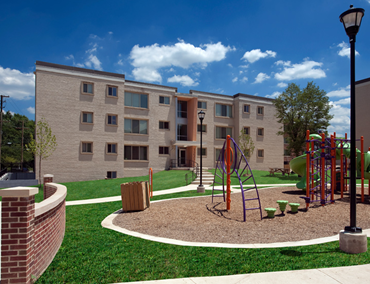This post was authored by David Fukuzawa, Program Director for Health, at the Kresge Foundation.
I recently took a tour of slum housing in South Los Angeles and met with a community collaborative comprised of a community health center, a tenants’ rights organization and non-profit housing developer. The partnership grew out of the recognition that health care alone wasn’t going to fix the health problems of the 48,000 people living in run-down, infested, toxic housing who get sick each year. (And as if housing wasn’t bad enough, there is now a fracking well right in the middle of the ‘hood.)
A growing cross-sectoral chorus agrees housing has a significant effect on human health. The National Prevention Strategy, which was mandated by the Affordable Care Act, identified “Healthy and Safe Community Environments” as one of four strategic directions. In the influential Bipartisan Policy Center’s Housing Commission’s forthcoming recommendations for U.S. housing policy, a key principle is to ensure a decent and suitable living environment for all Americans.
In Investing in What Works for America’s Communities, Robert Wood Johnson Foundation President Risa Lavizzo-Mourey comments on the need for collaboration between those in the health and community development fields, saying “each of these sectors has had the same goal for decades: improving the lives of low-income families. Together we spend billions of dollars each year. Joining forces is not about spending more money but about better targeting our efforts, sharing tools and data, and learning what is working and then replicating those programs and investments.”
The Kresge Foundation sees a great need to address unhealthy housing conditions. Nearly six million homes are in substandard condition; equally vexing is the persistent disparities gap, with people of color and low-income families two to three times more likely to live in poor conditions. For these families, the “choice” of a home in a “long-life zip code” simply isn’t an option.
To accelerate progress in the field, the Kresge Foundation has committed four million dollars to its Advancing Safe and Healthy Homes initiative (ASHHI). ASHHI is intended to produce over five hundred safe and healthy homes and help grant recipients enact system changes to “routinize” healthy housing through local policy change.
Kresge has also forged a new philanthropic partnership called the Health and Housing Funders Forum (Funders Forum), which fosters collaboration among philanthropic organizations to make a significant impact in the area of healthy housing and healthy communities. A key priority for the Funders Forum is to sharpen the communications around housing and health by creating a unifying and empowering message.
As a first step, the Funders Forum is convening a webinar where the Frameworks Institute will present its research on environmental health communications and a related report. I invite funders to join us on Wednesday December 12th at 2-3 p.m. EST for this webinar and be part of this multi-disciplinary discourse. Click here to register.
David Fukuzawa, Program Director for Health at the Kresge Foundation and HEFN member, authored this guest post.

